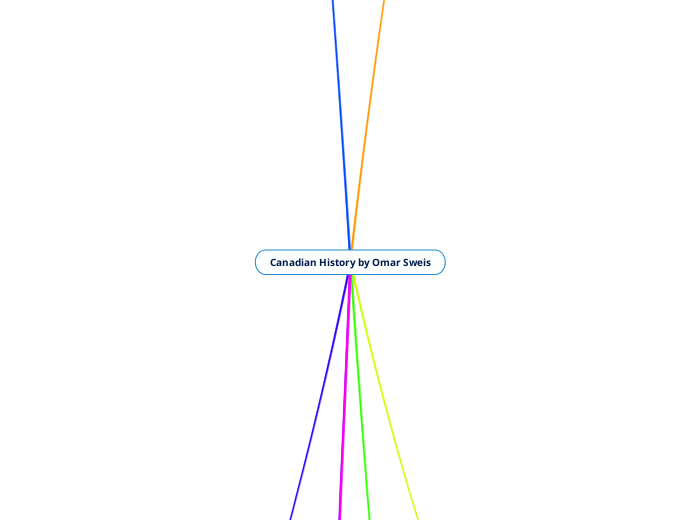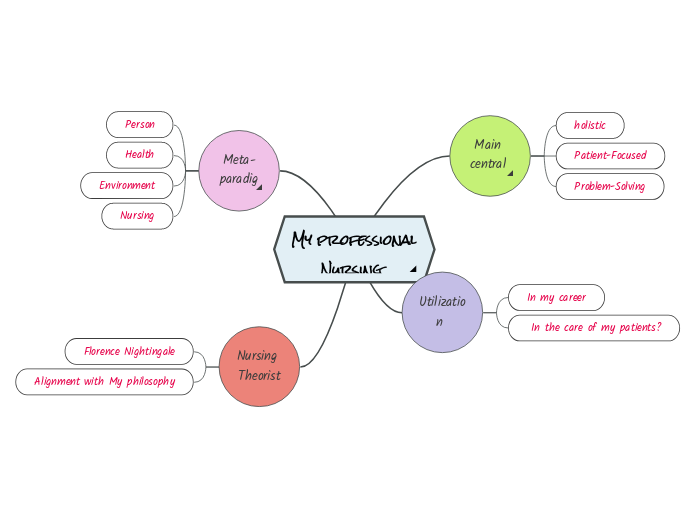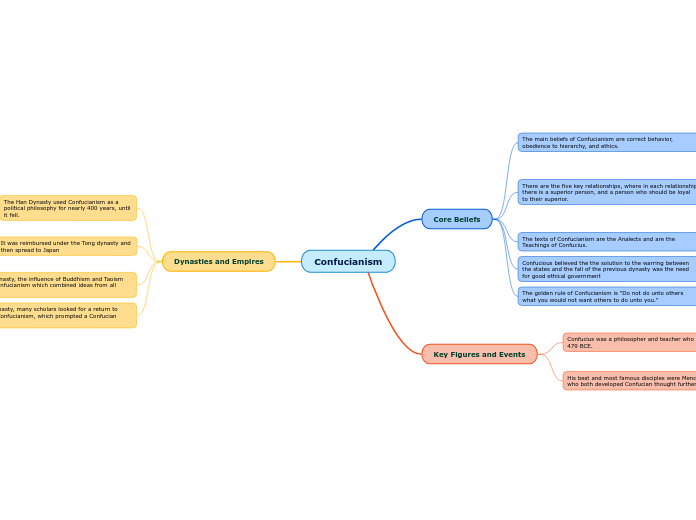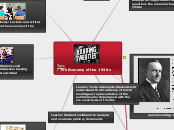Canadian History by Omar Sweis
1930s - This will talk about what Canadians did and what they went through during the 1930s.
The Great Depression
People lost their jobs, 4/5 Canadians didn't have jobs
This was the time Canada had the lowest job rate
Men would ride ontop of trains to go to different cities to find jobs
They couldn't pay for the train ticket so they found a cheap alternative
Because people couldn't get jobs, they couldn't afford their homes
Families were kicked out
Majority of Canadians were homeless
Relief camps were open for jobless men
Caused by the stock market crashing
Businesses couldn't afford to stay open
Owners who had money left, stopped their company and left
Riots came from this event
Murder came from the riots
Canada and Today (Forces of Change) - This will talk about Canada in present time. What has happened and what problems have been created in present day.
Discrimination
Montreal Massacre
Feminism was being more active
25 year old man didn't like that
Shot only women
Killed 14 women and himself
Colour of Skin
People of colour would call to own an apartment
They would allow
When they saw the colour of skin
They would now refuse
Until a white person gets it
Religion
Baltej Singh Dhillon and RCMP
Was training to become a mountie
Was not allowed to wear turban on duty
People were agreeing with this
In the end he was allowed to hear a turban
Some people sent hate and threats
Indigenous Rights
Oka Crisis
Wanted to cut down for golf course
People didn't like that
Protest happened
Both sides brought guns and soilders
An officer was shot
Indigenous people lost
South Moresby
Ancient rain forest for the Natives
Was planing to be cut down
Logging company had the right
Environmentalist and Indigenous people didn't like that
Got it declared a reserve
Aboriginals won
Berger Inquiry
Canada wanted to build a pipe line near Aboriginal territory
Thomas Berger was question why
Investigations happened
Got a lot of Indigenous people to support him
Technology
Home computers were invented
Offices used them
Didn't need as much jobs like telephone operators
Jobs were taken away and were replaced with technology
New Jobs created
Home Computers
Allowing people to code
People created games with this code
Game companies were invented
Machines for factories were created
Those machines broke
People needed someone to fix them
Engineering and mechanical jobs were made
Made jobs easier
The tech made it easier to multi task
Laws and Legislatures
Free Trade 1988 Elections
Canada wanted to trade with America
Canadians didn't like that
Canadians were divided
Voting sided with the Free trade
Inglis company was bought
Free Trade shut down the Inglis Company
1980 Referendum
Quebec wanted to separate
The Qui Side
Got help from Trudeau
The Non Side got back their winning side
The Non side
Was winning
Then losing
Continued their lost by shaming women
Voting starts
The Non Side wins
The Constitution
Trudeau wanted to work on the constitution
Premiers didn't like it
Sent out representatives to work out it
Trudeau didn't like that
The representatives didn't care and the Constitution got accepted
1920s - Canada during the 1920s. This will talk about what has been created or what has been popularized during this time, as well as talk about how these people lived their lives.
Technology/Science
Popularization
Telephone
Made it easier to talk to people from a long distance
Letters take months to get to their recipient and mailing problems, like messed up addresses do happen.
Phones make it so it could take those months and turn it into a couple of seconds
Planes
Because the war was over planes weren't just for the military
They created civilians planes
These planes were just meant to travel
They allowed more jobs like pilots and allowed people to travel quickly
Electric Washing Machines
Washing machines have been around since 1851
Electric Machines has been invented in 1920s
They quicken the process as well as allow the user to do other chores
Radio
Invented the in 1800s
Popularized because it was cheaper than a T.V aswell as a great source of entertainment
Hydroelectricity
1st used in 1878
Its a clean way to get electricity
Fridge
Fridges were popularized during this time
They made storing food easier
Before people had different ways to store food depending on weather but they couldn't check if their food was expired
The fridge was a quick fix
Inventions/Discoveries
Pablum
Pablum is basically baby food
Children at this time were suffering from rickets, a disease cause by lack of nutrients. Mostly affected children and babies because their lack of teeth made it hard to eat food
Pablum was smooth, and liquid like so people could easily digest it without biting and get they get their nutrients. Stopping rickets.
Instant Camera
Invented by Samuel Shlafrock
The instant camera was supposed to be a portable way for people to take pictures without setting up a huge camera. However it costed a lot so not everyone had it
It works really well in dark rooms
The police found it to be a very useful tool
Cars (Ford T)
Invented in 1908
The Ford T was a fast was to travel around a city or visit a neighbouring one
They were really expensive
The Television
Invented in 1927 by Philo Farnsworth
It was a way to get easy news, and entertain families. as well as see visuals.
They costed alot, however so most people during this time had a radio
Penicillin
Discovered in 1928 by Alexander Fleming and his team
Penicillin was used to stop bacteria from growing
It stopped a lot of diseases
Gonorrhoea
Pneumonia
Infections
Insulin
Discovered by Sir Frederick G Banting, Charles H Best, and JJR Macleod in the University of Toronto
Insulin was a way for people to survive type 1 diabetes
Before people with type 1 could only live 1 to 2 years
With insulin their life span increased
Fashion
Men's
Men's clothing was the most formal it has ever been
Wore suits
Knitted sweaters
Overcoats
Wore top hats
Canes
Grooming was very important for men in this era
They would have a clean cut of hair
Beards were hardly seen during this time
Sailor like outfits
Clothes made from velvet
Women's
Kid's fashion
Dresses
With a light cardigan around them
Women during this time wore a variety of clothes
Fur coats
Daywear
Fancy dresses
Little black dresses
Casual clothes
Accessories
Umbrellas
Hats
Feathers
Flapper girls
Women were making a statement, they wanted to change how soectity saw women
Flapper girls had short, masculine like hair
Flapper girls had short loose dresses
Flapper girls wore tiny hats
Crime
Bootlegging
This was selling alcohol illegally
This also including selling their own alcohol
People usually created something called rotgut
Rotgut was a poorly made drink with toxic alcohol
Drinking rotgut would lead to blindness, sickness, and even death
People managed to smuggle alcohol throw borders between the US and Canada
Tax/Inseurance fraud
Murder
Human trafficking
Counterfeiting
Pornography
Prostitution was common in the 1920s
Bank Robberies would take place in the 1920s
Sports
Basketball
Created by James Naismith in 1981 at Spring field college
The game has a lot of native roots
The Olmec Civilization actually played the game in1200-400 BCE
Basketball gained its popularity when it came to the YMCA
First popularized in the US, then afterwards came to Canada
Another reason it grew was the fact it was a low-risk game, meaning less people were getting injured playing it
Baseball
Origins come from 2 games rounders and cricket
Popularized in 1800s
It was a simple game
Since the game has been created the rules have been constantly changing
Hockey
First recorded being playing in Montreal in 1875
The origins of hockey are still not known but most people think they came from Canada
It may not be true that Canada created the game they're really good at it
They created the NHL in 1917
And hosted many games during the 1920s
Entrainment
Music
Jazz music was popular at the time
It was invented by African Americans
Oscar Peterson being a famous name of Jazz in the 1920s
Dance
Dancing at night clubs would be very popular in the 1920s
Popular dance moves
The Tango
The Foxtrot
The Black Bottom
The Brazilian Samba
The Texas Tommy
The Shimmy
Dancing competitions
Dancing competitions would be very popular in 1920s
They would be competitions to see who can dance the longest
They would last from days, to weeks, to months with some breaks in-between
This would actually be a problem because some people would die from these competitions because of the constant dancing
Most had competitions that give money and have different divisions
Pros would join in beginner divisions to get easy money
Silent films were loosing their popularity
Talkies were taking over
Talkies were films that were not silent and had sound
The first talkie was The Jazz Singer
Art
The Group of Seven
Art Style
Long strokes using oil paint
Usually would draw natural Canadian landscapes
Members
Offical
A.J Casson
F.H Varley
J.E.H Macdonald
Arthur Limser
Lawren Harris
Franz Johnston
Frank Carmichael
A.Y Jackson
Honorary
Emily Carr
Emily Carr was inspired by Lawren Harris
She would often visit the group and hang out with them
The group did like her a lot and declared her an honorary member
Emily Carr was known for her drawings and her writings
Tom Thompson
Tom Thompson would suggest the idea the group of seven
His art style would be the style the group of seven was known for
Sadly he died before the group was officially created
Goal/Results
To stray away from Britain and what was popular there
They wanted to do this by showing natural Canadian landscapes
In the end the were successful by showcasing Canadian art al over the world and inspiring Canadian artist to find their own style. EX: Emily Carr
The Beaver Hall group
Goal
Subtopic
Memebers
WW1 - This is about battle Canadian fought in WW1, their contributions, the environment and how it ended
Homefront
Reduce food consuption
Soldiers needed as much food as they can and to take off the load of farmers, people would do special causes to save food
Meatless Mondays
On Mondays people wouldn't eat any meat based products so they could give it to soldiers
Wheat-less Wednesdays
Wheatless Wednesdays
On Wednesdays people wouldn't eat any food with wheat in them so they could give it to soldiers
War Act Measure
Prime Minstears were in complete control
They could arrest anyone who they suspected to be a spy
They didn't allow immigrants during this time
They worried that everyone they allowed would be a spy
More work load
Farmers had to work harder
The amount of soldiers fighting for the triple entente was a-lot
Because of this farmers need to make as much food as possible for Canadian citizens and soldiers
Factorys had to work harder
They were creating weapons, ammo and other supplies for the soldiers at this time
Properganda
Posters shaming men for not joining the army
Would Appear everywhere
Billboards
Movies
Street Walls
Battle of Vimy Ridge
Battle Field
Snowy
Cold
Took place in Vimy Ridge, France
Trenches filled with animals
Mouses
Fleas
Lice
Muddy
Windy
Battle started April 9 1917
Ended April 12 1917
Canadians troops came before the battle ready to set up their defesnses
100,000 Canadian soldiers fought in this war
Canada brought all divisons of their soilders soilders
10,000 total casualties
Canada was established as a country not a British colony
Women
Bluebirds
Women would volunteer to be war nurses
Helped heal wounds of soliders
Saved many soldiers' lives
Because of their hard work during those uncertain times they received praise
they would receive honors
They would wear these blue outfits
So soldiers called them bluebirds
They replaced alot of jobs at home
Women and chilren replaced farmer jobs
Because most of the males were sent to war
Women and children replaced industry jobs
Because most of the males were sent to war
Created Women Organizations
This organizations would help women in struggling times
Women would give other women resources that they need
They gave soldiers items they made
Knitted Gloves
Bed Clothing
Bandages
Quilts
Baked Goods
Crafts
Voulnteers
Red Cross
Other Non Profit Organizations
Battle of Somme
Battle started July 1 1916
Ended November 18 1916
Canadians arrived before the battle began
Helped attack Ancre Heights
Helped attack the Thiepval
Helped attack the Courcelette
Traveled through no man's land
Helping the attack
Causalities
More than 1 million causalities
The Triple Axis won
River of Somme
Trenches
450 miles long
Had barbed wires surrounding it
Very muddy
Sunny for most
Rainy on other days
The Battle of Passchendaele
275,000 British casualties
222,000 German casualties
16,000 Canadian casualties
Unknown amount of animals were killed during this battle
Triple Entente won
Battle started July 31, 1917
Ended November 10, 1917
Canadians joined first week
Around 100,000 soldiers were Canadian
Battle set at Ypres
Rained 2/3 days for the entire battle
The battle was very muddy
This slowed down soldiers and animals getting some of them killed
Battle of Ypres
Starts at April 22, 1915
Ended May 25, 1915
Canadians joined the first week
Canadian Soldiers survived chlorine gas bomb attacks
They didn't have gas masked, so they did this by breathing into handkerchiefs filled with urine
Hold down the triple alliance forces to for triple entente soldiers to come for backup
This lead into triple entente forces to win the battle
Canadians created the famous poem Flanders Field
Battle set at westside Ypres
Very rainy, rained every day of the battle
This lead to the location being very muddy
Casualites
35,000 German casualties
59,000 British casualties
6,500+ Canadian casualties
22,000 French casualties
Canada gained respect for their efforts
Post War 1919 - This will talk about how life for Canadians changed after the first world war. What problems happened during this time and how Canada handled them.
Spanish Flu
The Spanish Flu caused a pandemic
Schools, churches, business, etc. were all closed down
50,000 Canadians died from this disease
Lead to the Federal Department of Health
Job Loss
Soldiers coming back were out of a job
They were asking for jobs but if they got one someone would have either be fired or laid off
Inflation raised prices
People were complaining more as the money they got from being in the war wasn't good enough
People were fed up and created a general strike
Factory owners made so much money during the war
They decided to close down their businesses
Women who were working in these factories were told to go back home and do their womanly duties
Women, who have been doing most of the work during the war were outrage
Women as well joined the general strike
Montreal General Strike
Canadians were upset that they were getting either no jobs or the jobs they were getting were paying very little that they couldn't buy anything
The strike was to protest that people should have more job opportunities and that there should be higher pay and less hours
The strike was happening for months
People without jobs were giving up the strike and went make to low paying jobs just so they could mean ends meet
They failed in their original goal and no demands were met
This strike brought more attention to the economical problems of Canada to everyone throughout Canada
Many people in the strike didn't have a job to go back to
Most leaders were arrested
Canadian Movements - This will talk about Canadians movements. These moments will be fighting for equality or taking action in major problems happening in Canada.
Feminist Movements
Burning Bras
This would be women burning their bars and walking around braless
This was supposed to represent the women freedom have
There were "Freedom trash cans" where women could burn everything they felt was oppressing them
Irene Murdoch
Irene Murdoch got divorced and her and her husband shared a farm when married.
They both put the same amount of effort and the same amount of time into that farm
When the divorce case settled Irene's former ex-husband got the farm and Irene got $200/month
This led to protests and changed laws around divorce to make settlement more equal
Charter of Rights
When the charter of rights when introduced the Irene Murdoch situation was still new
This led women to feel like the charter didn't cater to the inequality women were facing nor protecting them from it
Women stroke protests in order to combat this
The Canadian government listened to them and made them write an "equality clause" in the charter
Person's case
The BNA act was an act that stated "persons" however, this only meant men
Women protested against this so that "persons" would mean women as well
The Canadian government listened to them and stated the "persons" means women as well, and not just men
Suffragettes
These would be women fighting for the right to vote and the ability to run for office
In 1917 - 1940 Canada slowly gave women the rights to be able to vote in every province
Environmental Movements
Earth Day
Earth Day was a way to spread awareness about the earth's ecosystem
There was no acts to prevent people from damaging the environment
Because of this Nelson Gaylord wanted to do something to bring awareness to the eco-problems
April 22 1970 was the first time Earth Day was officially celebrated it
Canada was one of the countries that celebrated on the first Earth Day
Insecticides
During the 1970 Canada was planning on using spraying forests with insecticides
There was also a possible link that the insecticides were killing children
Camp Breton began protesting about the use of insecticides
When there was a vote to say yes or no to the insecticides, 18 to 1 people voted against it
Green Party of Ontario
Trevor Hancock suggested that Canada should have a green party to protect Canadian
This goal changed in the long term to fight climate change
The Green Party wanted to make up for the lack of innovative that the government was doing and actually increasing Canada's carbon footprint
Indigenous Movements
MMIWG
Multiple Indigenous women have gone missing and multiple murders of Indigenous women have not been solved, and the police did nothing
To combat this the people created the MMIWG
This organization is to help find these missing women or solve these murder cases
LGBTQA+ Movements
We Demand
In August 28, 1971. 100 - 200 people came to Parliament Hill in Ottawa
They demand 10 rights to stop homophobia
Effects around Canada
Toronto become the first province to ban discrimination against LGBTQ++
LGBTQ++ members were allowed to immigrate to Canada
Parliament hill may have rejected the demands, however Ottawa become the first province to ban discrimination against LGBTQ++
Original Outcome Results
All their demands were rejected
BLM Movements
After multiple discrimination and multiple crime cases from discrimination against Black people from government and police as well as multiple hate groups for Black people. People were fed up.
People created BLM, in order to spread awareness of discrimination
BLM modern day
The goal still hasn't changed, BLM is still a way to spread awareness and stop discrimination on black people
It is still needed during this time as police are still murdering black people when not warranted
George Floyd
Daunte Wright
Discrimination that led to BLM
Slavery
Segregation when the supreme court allowed businesses to discriminate against black people
Death by police that weren't warranted and were cause by discrimination
Micheal Brown
Trayvon Martin
When activities in the 90s brought attention to this problem
Martin Luther King
Viola Desmond
WW2 - This will talk about Canadians in WW2, which battles they took place in, how those battles ended. what Canadians did in those battles, and what sacrifices those Canadians made
Invasion of Sicily
Battle started July 9 1943
Ended Aug 17 1943
Canadians joined the first day of the battle
Canadians breached German defensive borders
It made sure the the Triple Axis forces couldn't hide behind them anymore
Breaching defensive lines made it easier for the Triple Alliance forces to travel through Sicily
The first day they came in they defeated a lot of Italian Soldiers, advancing their forces easily
Because of this, on the second day the Canadians came. Many Italian soldiers were surrendering
23,000 Allies Casualties
19,400 Canadians Injured
30,000 Nazis Died
100,000 Axis Soldiers captured
135,000 Italians Died
5,300 Canadians Died
Triple Alliance won because they managed to the Triple Axis forces retreat off the island
The weather was extremely windy
The Triple Alliance used this weather to their advantage by using the fact that the Triple Axis forces wouldn't think they would use airplanes in this weather
Island of Sicily
Battle of Britain
Battle started July 10 1940
Ended October 31 1940
Canadians joined first day
Elise Macgill
She found a way to make airplanes in a quick amount of time
She created the hurricane
The hurricane was fast, stronger and better than any German plane
The hurricane was the main reason the Triple Alliance won
The Royal Canadian Air Force fought in the battle
100 Canadians fought in the battle
The Triple Alliance won because Hitler knew he couldn't beat the hurricanes so he surrendered
English Channel
D-Day
Battle started ended June 6, 1944, was originally the 5th but because of weather, it was delayed
ended 30 June 1944
Canadian navy
Gave 110 ships
14,000 troops
Near the cost of Normandy
Strong winds, rough seas
Triple Alliance won
200,000 German casualties
5,000 Canadians died
The Battle of the Atlantic
Battle started September 3, 1939
Ended 1945, 6 years later
Canadians joined 10 September 1939
Sent Royal Air Force Coastal troops
sent Royal Canadian Navy troops
It took place in the Atlantic Ocean
It was wet
2,352 Canadian casualties
36,000 allied soldiers died
36,000 merchants died
The Triple Allies won
Battle of Ortona
Ortona Italy
Battle started December 20 1943
Ended December 28 1943
2,600 Canadians troops
Mountain boys
Trained Canadians soldiers who would fight on mountain tops
Triple Allies won
26,000 Italian casualties
500 Canadians died
2,300 allied casualties
Blitzkrieg
A strategy by Germans
Hit fast and hit hard
The main goal is to invade into enemy territory as much as you can
They would attack using mostly tanks, if they had to use foot soldiers, the solider would be near tanks
Canadian Contributions
Every time any Canadian fought in the war, it would fight against blitzkrieg
Naval troops
Foot soilders
Tank riders
Areal troops
Dunkirk
Casualities
17,000 soldiers died
Environment
Weather
Occasional thunder storms
Not cloudy
Battle started May 26 1940
Ended June 4 1940
Canadians joined Dunkirk in 1939, they were there when the battle officially started
The Canadian navy helped fight in the battle of Dunkirk
Battle of Dieppe
Evironment
Dieppe
Battle started and ended August 19, 1942
Canadians joined the first day
Canadian contributions
They did frontal attacks
This put major pressure on the Axis forces
Results
Triple Axis won
106 Allied aircraft were destoryed
Casualties
907 Canadian soldier died
Internment Camps
After what Japan did, Canada was worried about the Japanese Canadians
Their idea was to kick every Japanese Canadian put of their homes and put them into Internment Camps
These camps would have hard living coditions
Japanese Canadians also had to work in these camps to make sure they're functionally
They had to work for their own punishment
It didn't matter if they were born and lived in Canada their entire lives
Because they didn't even trust their own Canadians, they didn't allow any Japanese immigrants to come to Canada during these times









